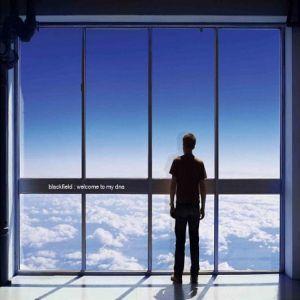
Blackfield, the on-off collaboration between Israeli singer-songwriter Aviv Geffen and prog rock mastermind Steven Wilson recently released their third album, entitled "Welcome To My DNA". It had a lot to live up to, given that Blackfield`s second album was a stunning piece of work, even if it was too damn depressing to listen to the whole way through, and so I approached Welcome To My DNA with high expectations.
The album opens with a typically Blackfield track, "Glass House", with the irresistable melancholic melodies and clever songwriting which makes the band what they are. Then comes a real head-scratching moment, the second song, "Go To Hell". If it wasn`t for the reasonably good instrumentalism this song would be a total dud - the highly incongruous lyrics of "Fuck you all, fuck you, I don`t care" are almost laughable it's so bad. This is the kind of dross you`d expect in some awful metalcore song. The album manages to dig itself out of this rut though, the rest of the record is peppered with decent pop/art-rock numbers, with the succulent, uplifting melodies of "Oxygen" being a definate highlight. In addition to the more straightforward material, Blackfield have given themselves some room for experimentation on this record - "Blood" is an obvious nod to Geffens origins, with the Middle Eastern riff which is central to the song. I can see many fans being put off by the melodramatic and cringeworthy nature of the lyrics (they are pretty emo, it`s a credit that these two men in their 40`s can so perfectly put themselves in the shoes of a depressed teen). Not to mention rhyming couplet of "small town" and "roots down" used in "Far Away"...remind you of anything?
Overall, this album has failed to live up to the very high standards set by Blackfield II, but nonetheless it`s definately worth a spin. Wilson's recent collaboration with Mikael from Opeth, due for release later in the year, should provide more interest.
7/10
Highlights: "Oxygen", "DNA"

